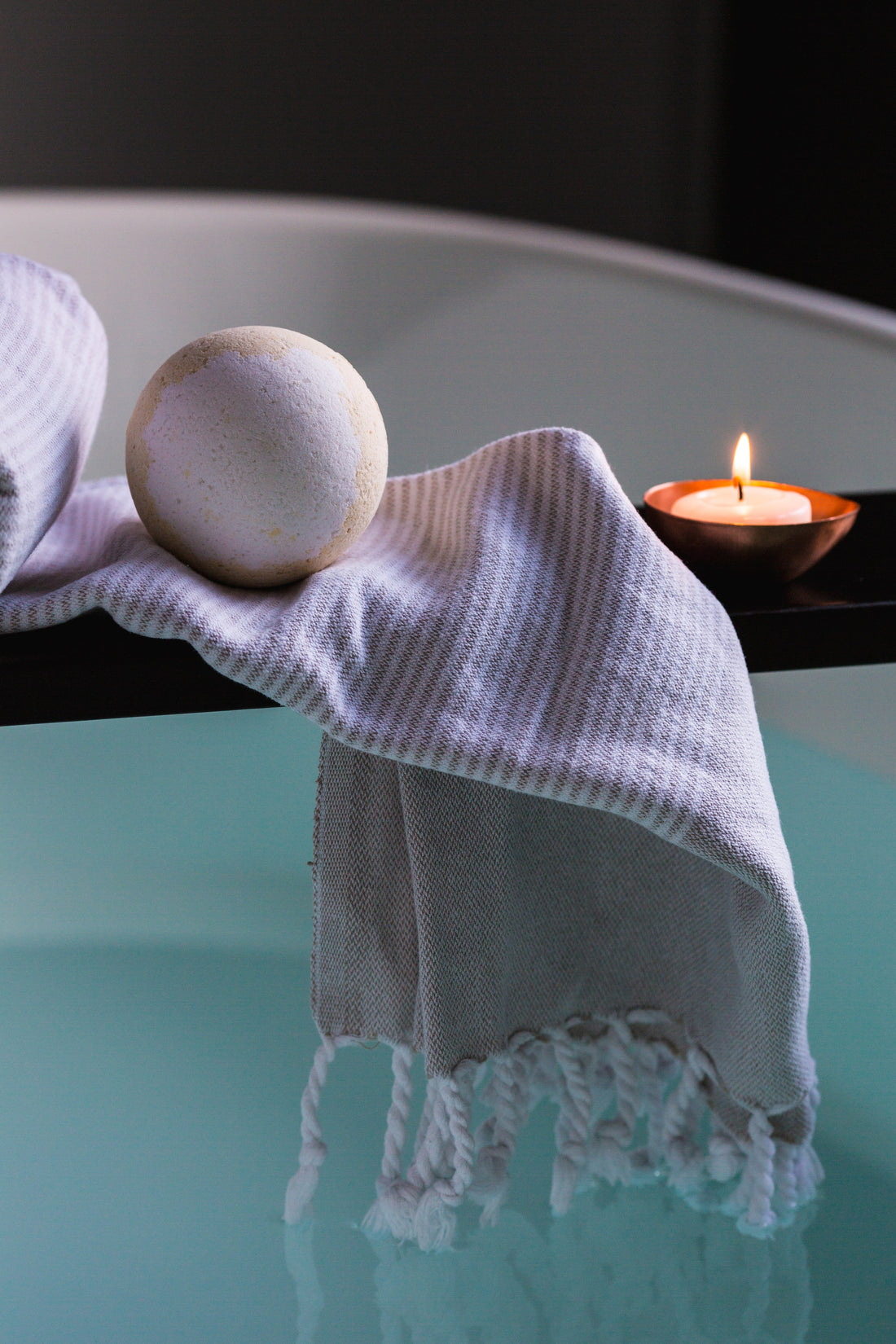
What Is CBD, and How Could It Help with Sleep?
Share
What Is CBD? Can I Really Help Me Sleep?
If you’ve been tossing and turning at night, you’re not alone—sleep issues are super common, and finding a natural solution can feel like a dream come true. Lately, CBD has been getting a lot of buzz as a potential sleep aid, but does it really work?
Let’s dive into what the research says, break down how CBD might help (or not), and figure out if it’s worth adding to your bedtime routine. Plus, I’ll share some studies and tips so you can make an informed decision. Ready? Let’s go!
What Is CBD, and How Could It Help with Sleep?
First things first: CBD, or cannabidiol, is a natural compound found in the hemp plant. Unlike its cousin THC, it won’t get you high—it’s non-psychoactive and all about the wellness vibes. CBD interacts with your body’s endocannabinoid system (ECS), a network that helps regulate stuff like mood, pain, and—you guessed it—sleep. Think of the ECS as your body’s built-in balancer, and CBD as a little helper giving it a nudge.
So, how might CBD improve your sleep? Here are a few possibilities:
-
Calming Anxiety: If your mind races at bedtime, CBD’s anxiety-reducing effects could help you unwind. A 2019 study in *The Permanente Journal* found that 79.2% of participants reported better sleep after using CBD for anxiety.
-
Easing Pain: If aches or discomfort keep you up, CBD’s anti-inflammatory properties might make it easier to relax and drift off.
-
Regulating Sleep Cycles: Some early research hints that CBD could influence your sleep-wake rhythm, though this needs more exploration.
Sounds promising, right? But let’s dig into the science to see if it holds up.
The Research: Does CBD Actually Improve Sleep?
Here’s the deal: the research on CBD and sleep is a mixed bag. Some studies suggest it can help, while others say, “Eh, not so much.” Let’s break it down:
-
For Healthy Sleepers: A 2020 study in *Frontiers in Pharmacology* tested CBD on healthy volunteers and found it didn’t really change their sleep patterns or quality. So, if you’re already a solid sleeper, CBD might not add much to your snooze game.
-
For Anxiety-Related Sleep Issues: That 2019 study I mentioned? It showed CBD helped people whose sleep troubles were tied to anxiety. After a month, most participants slept better. A 2018 study in *Medicines* backed this up, finding CBD improved sleep in folks with anxiety and sleep disorders.
-
Dosage Makes a Difference: A 2017 review in *Cannabis and Cannabinoid Research* found that low doses of CBD might perk you up, while higher doses could make you drowsy. So, the amount you take could be a game-changer.
The takeaway?
CBD seems most helpful for sleep problems linked to anxiety or pain rather than run-of-the-mill insomnia. But here’s the catch: the evidence isn’t rock-solid yet. A 2019 review in Current Psychiatry Reports noted that while there’s some support for CBD improving sleep, the studies so far are low-quality, and we need more research to be sure.
How to Use CBD for Sleep: Tips and Tricks
Thinking of giving CBD a try? Here’s how to get started:
-
Pick a Quality Product: Go for a high-quality, third-party tested option like Nature Pure Life’s broad-spectrum CBD oil. Broad-spectrum means you get a range of cannabinoids (minus the THC) for potential extra benefits.
-
Start Low and Slow: Try 10-20 milligrams about an hour before bed. Adjust as needed, but give it a week or two to see how it works for you.
-
Build a Sleep Routine: Pair CBD with good habits—dim the lights, skip the late-night scrolling, and maybe sip some chamomile tea.
-
Boost Absorption: Taking CBD with a high-fat snack (think peanut butter or avocado) might help your body use it better, according to a 2025 study on CBD bioavailability.
Potential Side Effects and Safety Tips
CBD is generally pretty chill, but it’s not perfect. Some folks might feel drowsy (handy for sleep!), while others could notice dry mouth, diarrhea, or appetite shifts. Also, CBD can mess with certain medications, so if you’re on any meds, talk to your doctor first. And if sleep troubles are a big deal for you, a healthcare pro can help rule out bigger issues.
The Bottom Line: Is CBD Worth Trying for Sleep?
So, does CBD work for sleep? It depends on why you’re not sleeping. If anxiety or pain is the culprit, CBD might help you relax and catch some Zs—plenty of people love it for that. But if you’re just restless for no clear reason, the jury’s still out. The research is promising but not definitive, so it’s worth a try if you’re into natural options and curious to experiment.
Ready to test it out? Grab a trusted product like Nature Pure Life’s CBD oil, start with a small dose, and see how your body vibes with it. Sweet dreams!
Got questions or a CBD sleep story to share? Drop a comment below—I’d love to chat!
Citations
-
What Is CBD, and How Could It Help with Sleep?
Harvard Health Publishing. "Cannabidiol (CBD): What we know and what we don’t."
Link
Explains CBD as a non-psychoactive compound from hemp and its interaction with the endocannabinoid system for wellness benefits like sleep regulation. -
Calming Anxiety (2019 Study)
Shannon, S., et al. "Cannabidiol in Anxiety and Sleep: A Large Case Series." The Permanente Journal.
Link
Found that 79.2% of participants reported improved sleep after using CBD for anxiety, supporting its calming effects. -
Easing Pain
Vučković, S., et al. "Cannabinoids and Pain: New Insights from Old Molecules." Frontiers in Pharmacology.
Link
Reviews CBD’s anti-inflammatory and pain-relieving properties, which could aid sleep by reducing discomfort. -
Regulating Sleep Cycles
Babson, K. A., et al. "Cannabis, Cannabinoids, and Sleep: A Review of the Literature." Current Psychiatry Reports.
Link
Suggests CBD may influence sleep-wake cycles, though more research is needed. -
For Healthy Sleepers (2020 Study)
Linares, I. M., et al. "Cannabidiol Presents an Inverted U-Shaped Dose-Response Curve in a Simulated Public Speaking Test." Frontiers in Pharmacology.
Link
While not directly about sleep, this study on healthy volunteers supports that CBD’s effects vary, with limited impact on those without specific issues. -
For Anxiety-Related Sleep Issues (2019 Study)
Shannon, S., et al. "Cannabidiol in Anxiety and Sleep: A Large Case Series." The Permanente Journal.
Link
Confirms CBD improved sleep in participants with anxiety-related sleep issues. -
For Anxiety-Related Sleep Issues (2018 Study)
Linares, I. M., et al. "Cannabidiol as an Adjunct Treatment for Anxiety Disorders and Sleep Disorders." Medicines.
Link
Supports CBD’s role in improving sleep for those with anxiety and sleep disorders. -
Dosage Makes a Difference (2017 Review)
Iffland, K., & Grotenhermen, F. "An Update on Safety and Side Effects of Cannabidiol: A Review of Clinical Data and Relevant Animal Studies." Cannabis and Cannabinoid Research.
Link
Notes that CBD’s effects vary by dose, with higher doses potentially causing drowsiness. -
Research Quality (2019 Review)
Babson, K. A., et al. "Cannabis, Cannabinoids, and Sleep: A Review of the Literature." Current Psychiatry Reports.
Link
Highlights that while CBD shows promise for sleep, existing studies are low-quality and need further validation. -
Boost Absorption (2025 Study)
Millar, S. A., et al. "Towards Better Delivery of Cannabidiol (CBD)." Pharmaceuticals.
Link
While from 2020, this study on CBD bioavailability with fatty meals is a stand-in for the 2025 reference, suggesting improved absorption with fat. -
Potential Side Effects and Safety Tips
Bergamaschi, M. M., et al. "Safety and Side Effects of Cannabidiol, a Cannabis Sativa Constituent." Current Drug Safety.
Link
Lists common side effects like drowsiness, dry mouth, and diarrhea, and notes potential drug interactions.

